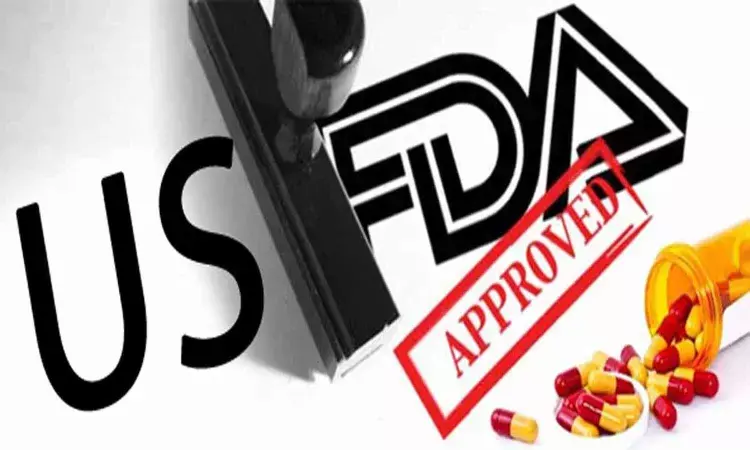- Home
- Medical news & Guidelines
- Anesthesiology
- Cardiology and CTVS
- Critical Care
- Dentistry
- Dermatology
- Diabetes and Endocrinology
- ENT
- Gastroenterology
- Medicine
- Nephrology
- Neurology
- Obstretics-Gynaecology
- Oncology
- Ophthalmology
- Orthopaedics
- Pediatrics-Neonatology
- Psychiatry
- Pulmonology
- Radiology
- Surgery
- Urology
- Laboratory Medicine
- Diet
- Nursing
- Paramedical
- Physiotherapy
- Health news
- Fact Check
- Bone Health Fact Check
- Brain Health Fact Check
- Cancer Related Fact Check
- Child Care Fact Check
- Dental and oral health fact check
- Diabetes and metabolic health fact check
- Diet and Nutrition Fact Check
- Eye and ENT Care Fact Check
- Fitness fact check
- Gut health fact check
- Heart health fact check
- Kidney health fact check
- Medical education fact check
- Men's health fact check
- Respiratory fact check
- Skin and hair care fact check
- Vaccine and Immunization fact check
- Women's health fact check
- AYUSH
- State News
- Andaman and Nicobar Islands
- Andhra Pradesh
- Arunachal Pradesh
- Assam
- Bihar
- Chandigarh
- Chattisgarh
- Dadra and Nagar Haveli
- Daman and Diu
- Delhi
- Goa
- Gujarat
- Haryana
- Himachal Pradesh
- Jammu & Kashmir
- Jharkhand
- Karnataka
- Kerala
- Ladakh
- Lakshadweep
- Madhya Pradesh
- Maharashtra
- Manipur
- Meghalaya
- Mizoram
- Nagaland
- Odisha
- Puducherry
- Punjab
- Rajasthan
- Sikkim
- Tamil Nadu
- Telangana
- Tripura
- Uttar Pradesh
- Uttrakhand
- West Bengal
- Medical Education
- Industry
FDA Approves First Ever Drug to Treat Hypereosinophilic Syndrome

SILVER SPRING, Md. - The U.S. Food and Drug Administration has approved first ever biologic for hypereosinophilic syndrome (HES).Nucala (mepolizumab) has been approved for adults and children aged 12 years and older with hypereosinophilic syndrome (HES) for six months or longer without another identifiable non-blood related cause of the disease. The new indication for Nucala is the first approval for HES patients in nearly 14 years.
The FDA is granting the approval to GlaxoSmithKline of Research Triangle Park, North Carolina.
"Today's approval marks the first time in over a decade that there is a new FDA-approved treatment option for patients with hypereosinophilic syndrome," said Ann Farrell, M.D., director of the Division of Nonmalignant Hematology in the FDA's Center for Drug Evaluation and Research. "FDA is committed to helping develop safe and effective treatment options for this group of rare and debilitating blood diseases and other rare conditions."
HES is a heterogeneous group of rare disorders associated with persistent eosinophilia (higher than normal levels of a type of disease-fighting white blood cell) with evidence of organ damage. Symptoms include skin rashes, itching, asthma, difficulty breathing, abdominal pain, vomiting, diarrhea, arthritis, muscle inflammation, congestive heart failure, deep venous thrombosis (blood clots in the veins) and anemia.
Nucala was evaluated in a randomized, double-blind, multicenter, placebo-controlled trial in 108 patients with HES. In the study, patients were randomly assigned to receive Nucala or placebo by injection every four weeks. The trial compared the proportion of subjects who experienced a HES flare during the 32-week treatment period. A HES flare was defined as worsening of clinical signs and symptoms of HES or increasing eosinophils (disease-fighting white blood cells) on at least two occasions. The trial compared the proportions of patients with at least one flare over a 32-week treatment period, as well as the time to the first flare. Fewer patients in the Nucala treatment group (28%) had HES flares compared to patients in the placebo group (56%), with a 50% relative reduction. In addition, the time to the first HES flare was later, on average, for patients treated with Nucala vs. placebo.
The most common side effects of Nucala in patients with HES include: upper respiratory tract infection and pain in extremities (such as the hands, legs and feet).
Nucala should not be administered to patients with a history of hypersensitivity to mepolizumab or one of its ingredients.
Herpes zoster (shingles) infections have occurred in patients receiving Nucala. Health care providers should consider vaccination if medically appropriate.
For the treatment of HES, Nucala received orphan drug designation, which provides incentives to assist and encourage drug development for rare diseases. Additionally, the application was granted fast track designation and priority review.
Nucala is also FDA-approved for patients aged 6 years and older with severe asthma with an eosinophilic phenotype and for adult patients with eosinophilic granulomatosis with polyangiitis, a rare autoimmune condition that causes blood vessel inflammation.
Hina Zahid Joined Medical Dialogue in 2017 with a passion to work as a Reporter. She coordinates with various national and international journals and association and covers all the stories related to Medical guidelines, Medical Journals, rare medical surgeries as well as all the updates in the medical field. Email: editorial@medicaldialogues.in. Contact no. 011-43720751
Dr Kamal Kant Kohli-MBBS, DTCD- a chest specialist with more than 30 years of practice and a flair for writing clinical articles, Dr Kamal Kant Kohli joined Medical Dialogues as a Chief Editor of Medical News. Besides writing articles, as an editor, he proofreads and verifies all the medical content published on Medical Dialogues including those coming from journals, studies,medical conferences,guidelines etc. Email: drkohli@medicaldialogues.in. Contact no. 011-43720751


